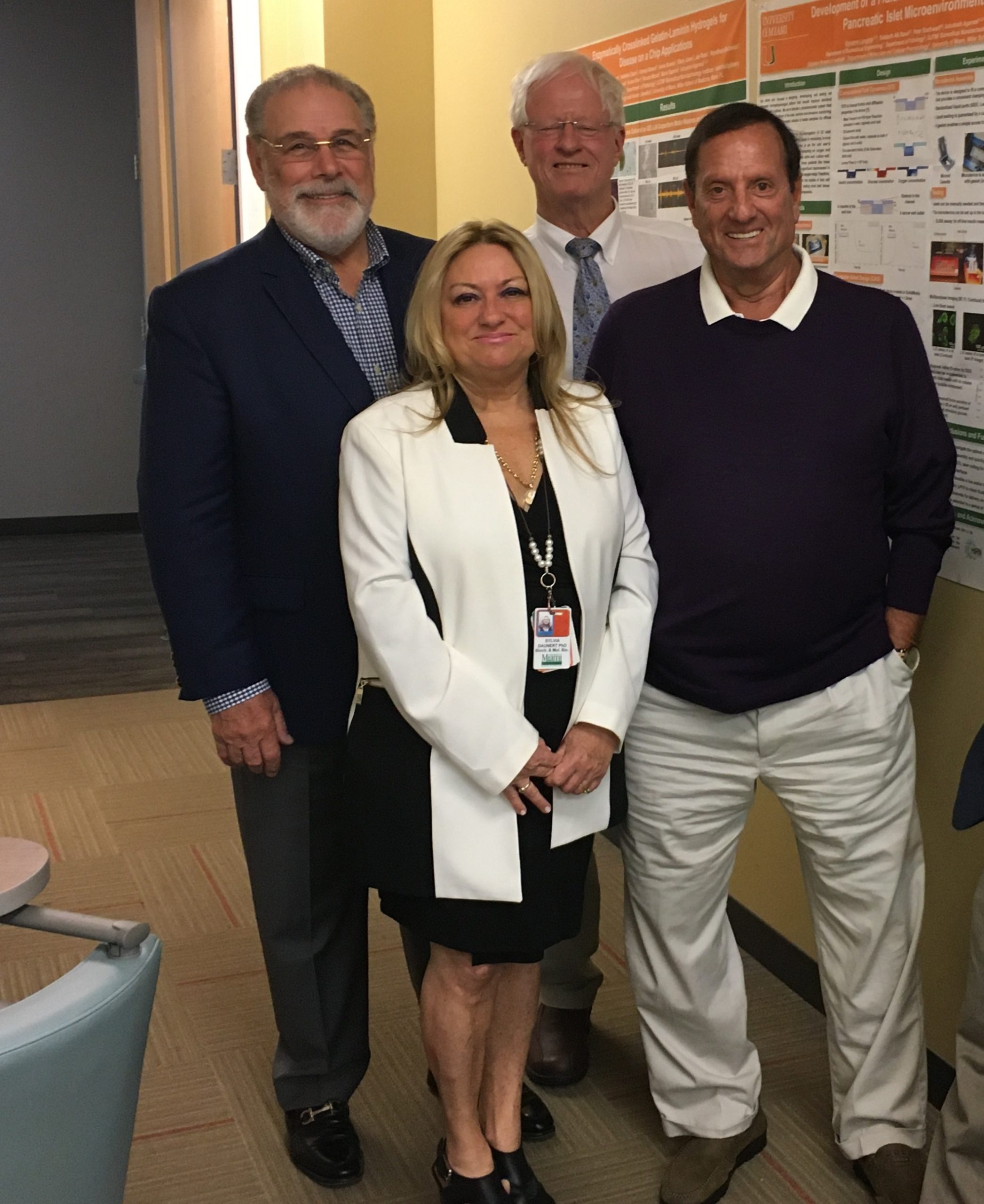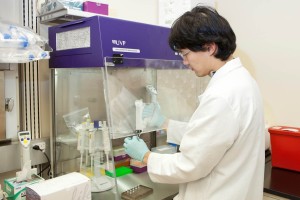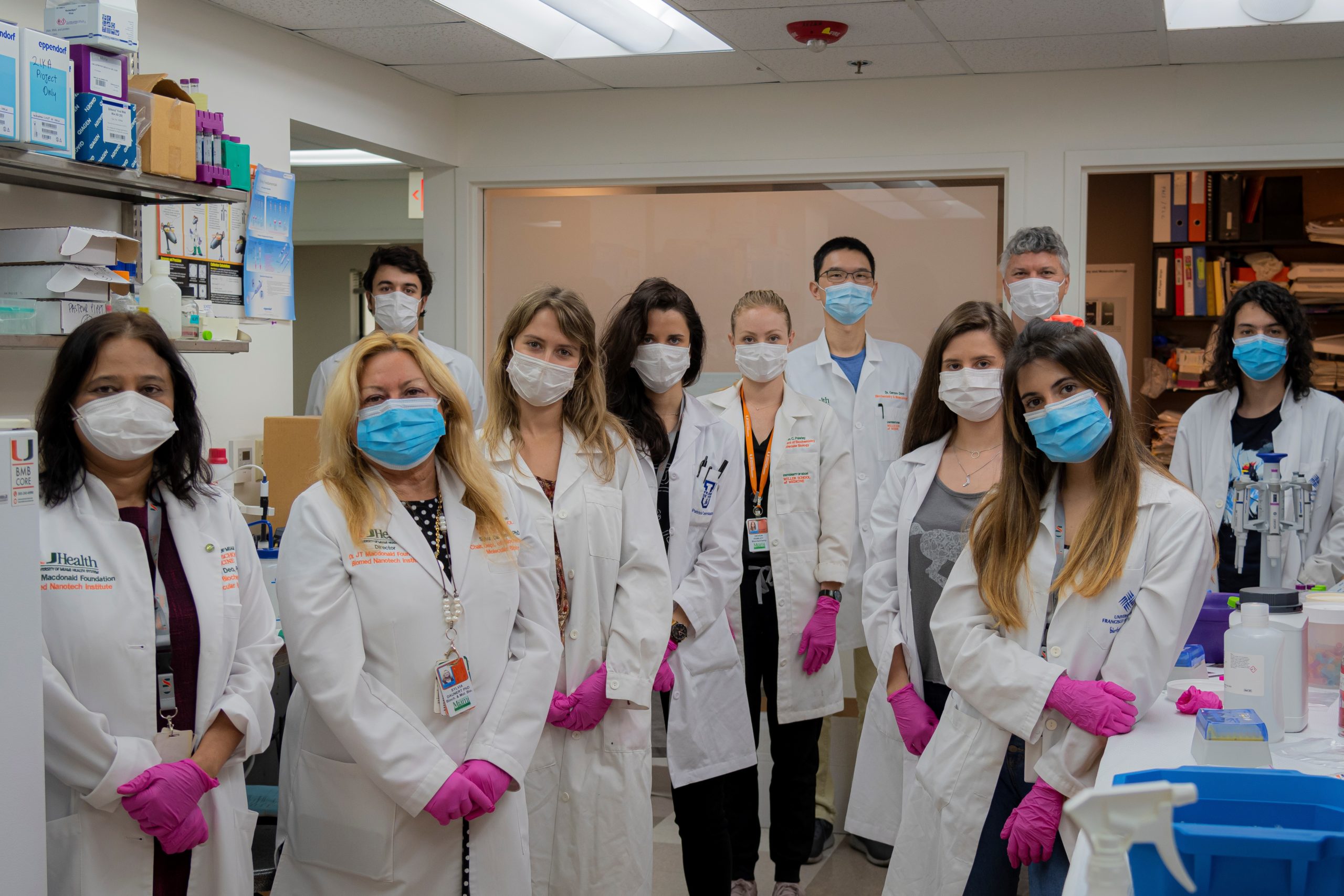Biomedical Nanotechnology Institute

Dr. Sylvia Daunert, Director of BioNIUM with Foundation Board Members, Aldo Busot, Chairman, Dr. John Nordt and Dr. Dean Roller
Smaller than a millionth of a millimeter, they promise to carry tumor targeting drugs that don’t affect healthy cells, help “smart pills” detect glucose and release insulin, and strain tumor cells in the blood with an ultra-fine filter. It sounds like science fiction but is now quite possible thanks to advances in biomedical nanotechnology.
Thanks to a $7.5 million grant in 2012 from the Dr. John T. Macdonald Foundation, the Biomedical Nanotechnology Institute at the University of Miami (BioNUM) will become a leader in bionanotechnology in South Florida, across the country, and around the world. The mission of BioNIUM addresses three overarching themes:
- Detection of disease at the earliest possible time
- Delivery of treatment at the right place and at the right time
- Restoration of tissue and organ function through innovative approaches
The potential of bionanotechnology—and specifically nanomedicine—to transform detection, treatment, and eventually prevention of serious disease cannot be overstated. The ability to structure materials and devices at the molecular scale has the potential for enormous breakthroughs in medical research and clinical care.

In just a few years, advances in nanomedicine will be made and in generations to come millions of people will experience a dramatic reduction in the most devastating diseases, greatly improved health, and an extended life expectancy. In recognition of its tremendous potential, the National Institutes of Health has included bionanotechnology as one of only five “New Pathways to Discovery” in the NIH Roadmap and considers this science a funding priority

Dr. Sylvia Daunert with COVID Research Staff
BioNIUM‘s focus will be on translational research that brings scientific breakthroughs from the “bench to the bedside.” Interdisciplinary teams of engineers and biomedical researchers will customize nanoscale technologies that have already been scientifically validated in model systems for eventual clinical use.
This work will constitute a critical, transitional step in the progress toward the clinical application of nanomedicine. Finally, scientists will aim to produce tangible outcomes and complete device development within five years with a goal of developing technologies suitable for testing in patients.
Destined to transform medical research and patient treatment through bionanotechnology, the Dr. John T. Macdonald Foundation BioNIUM will be recognized nationally and internationally for groundbreaking advances in the detection, treatment, and ultimately prevention of the most devastating diseases.
For more information, click here.
